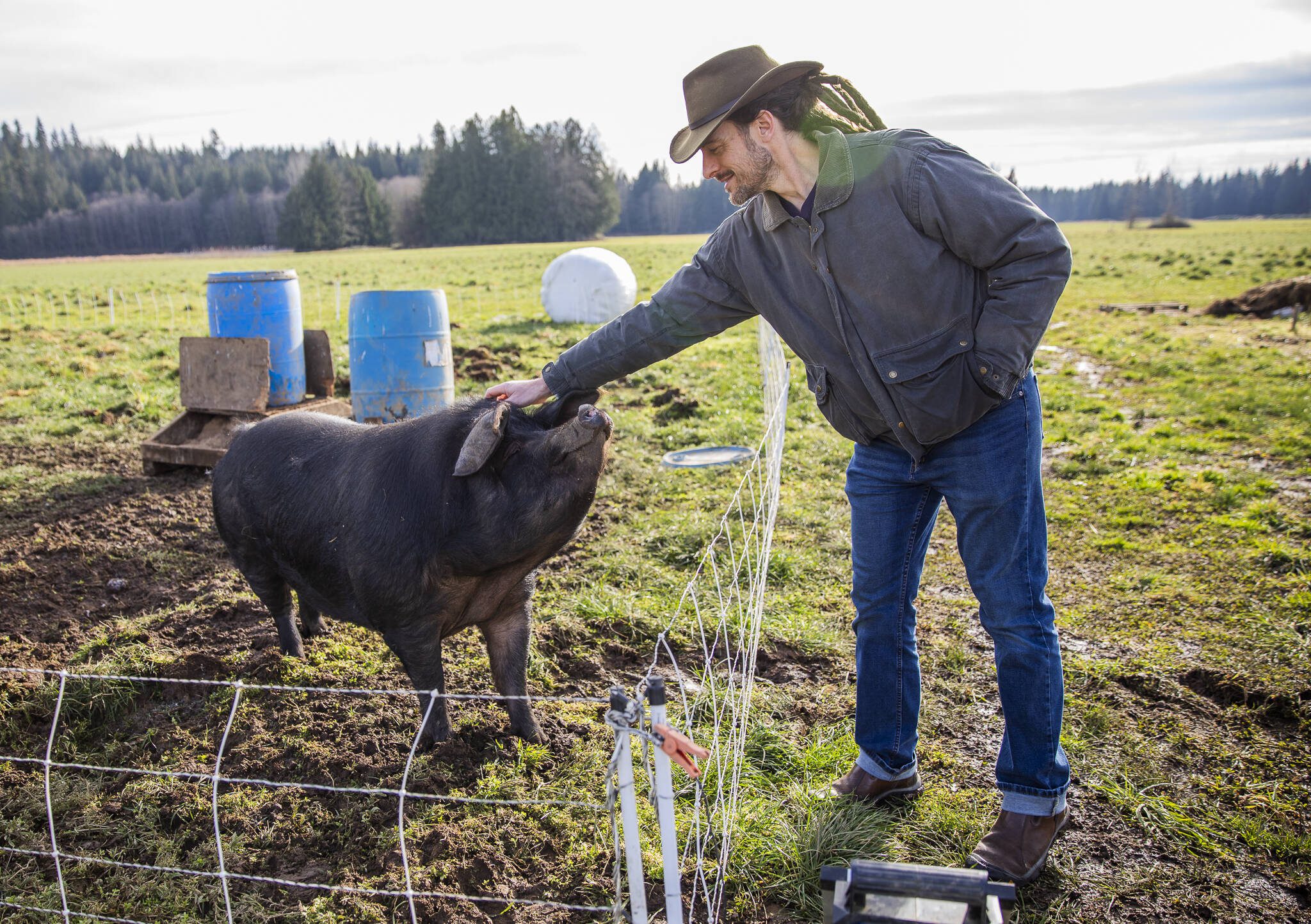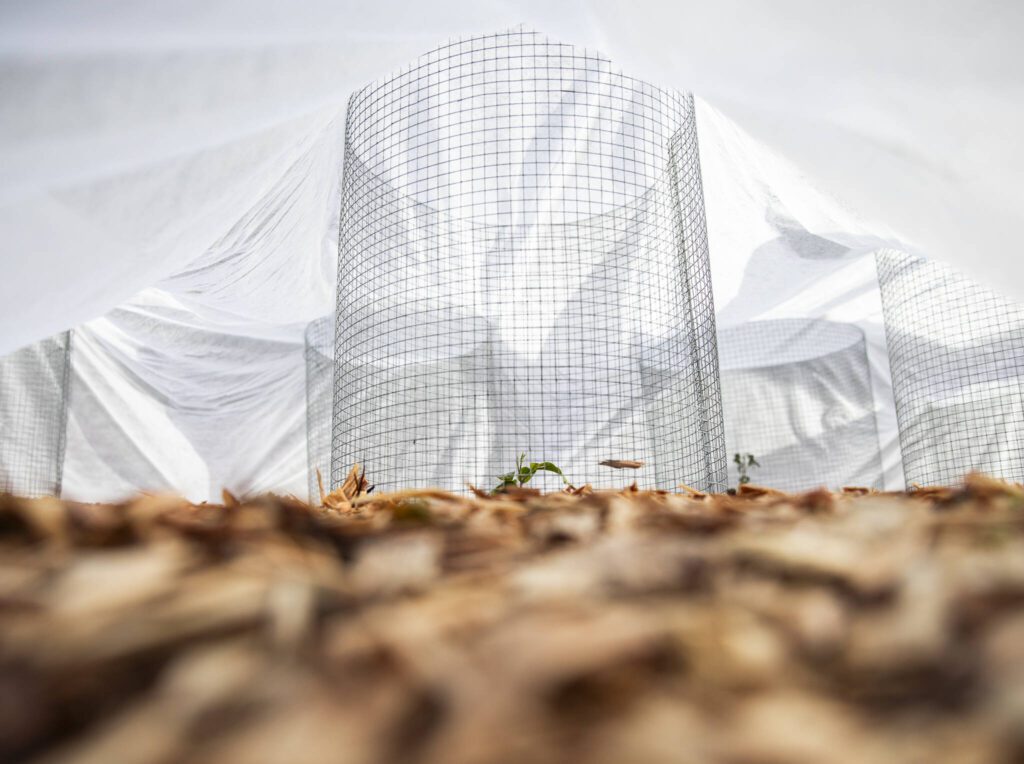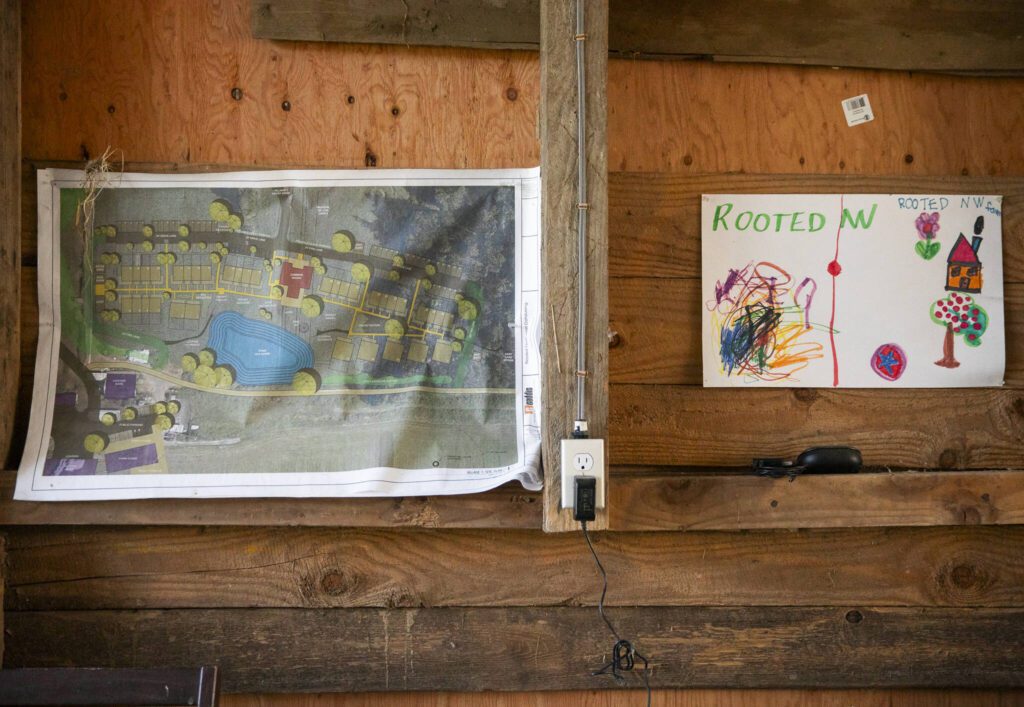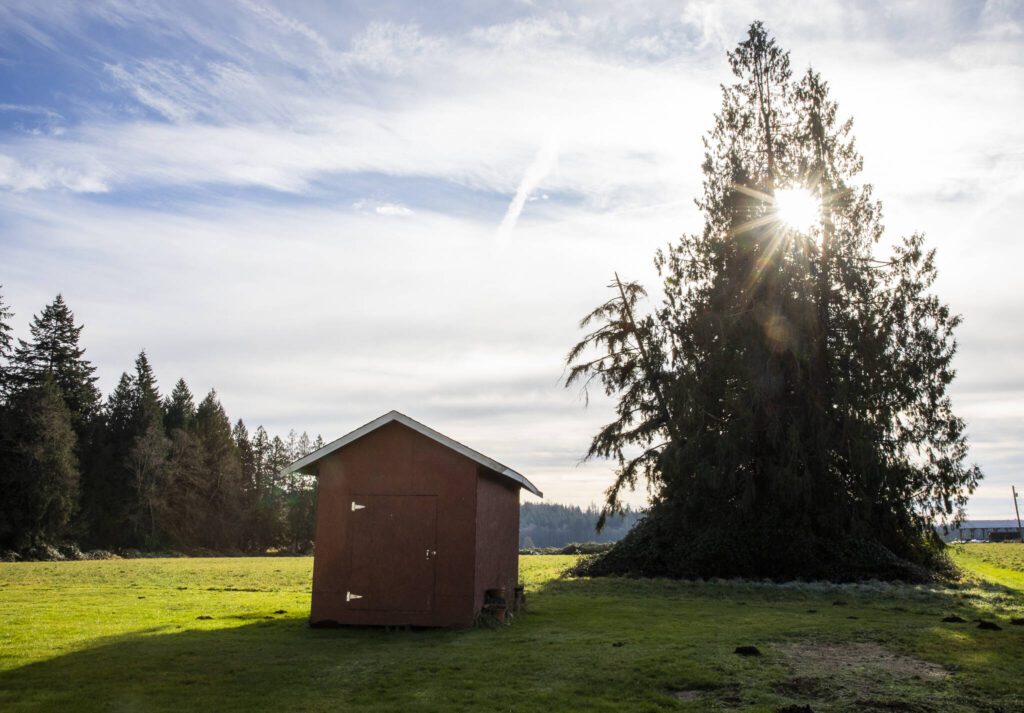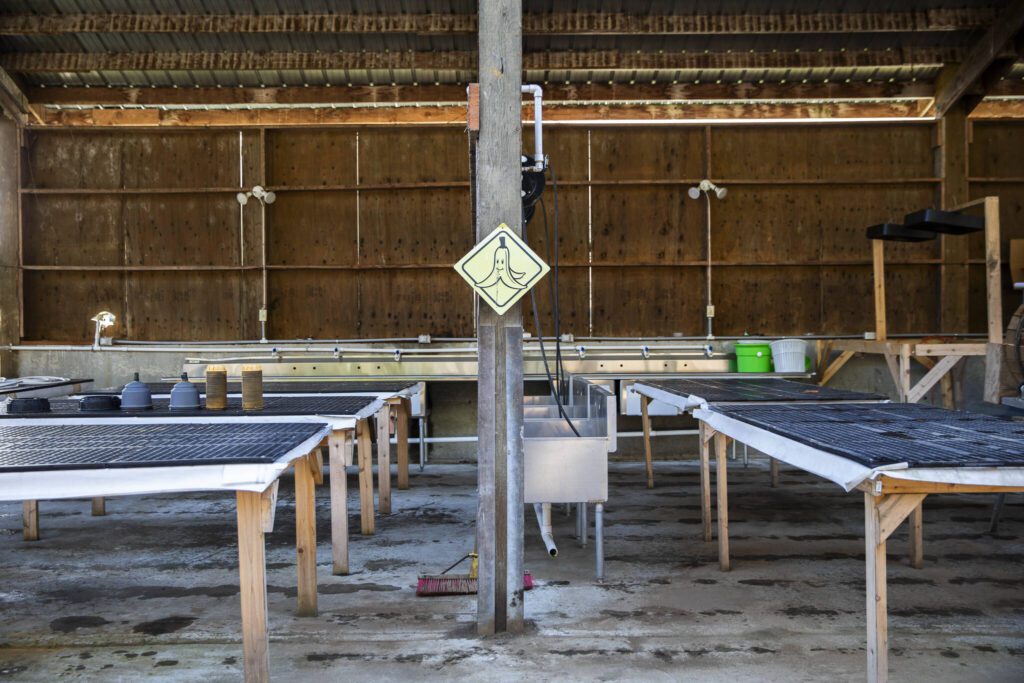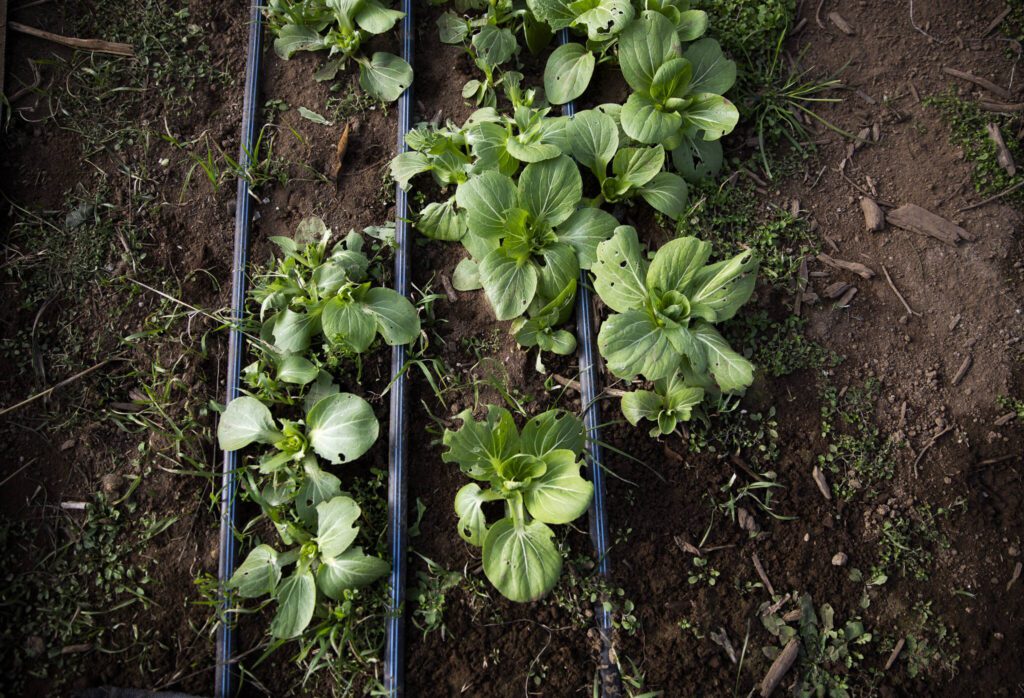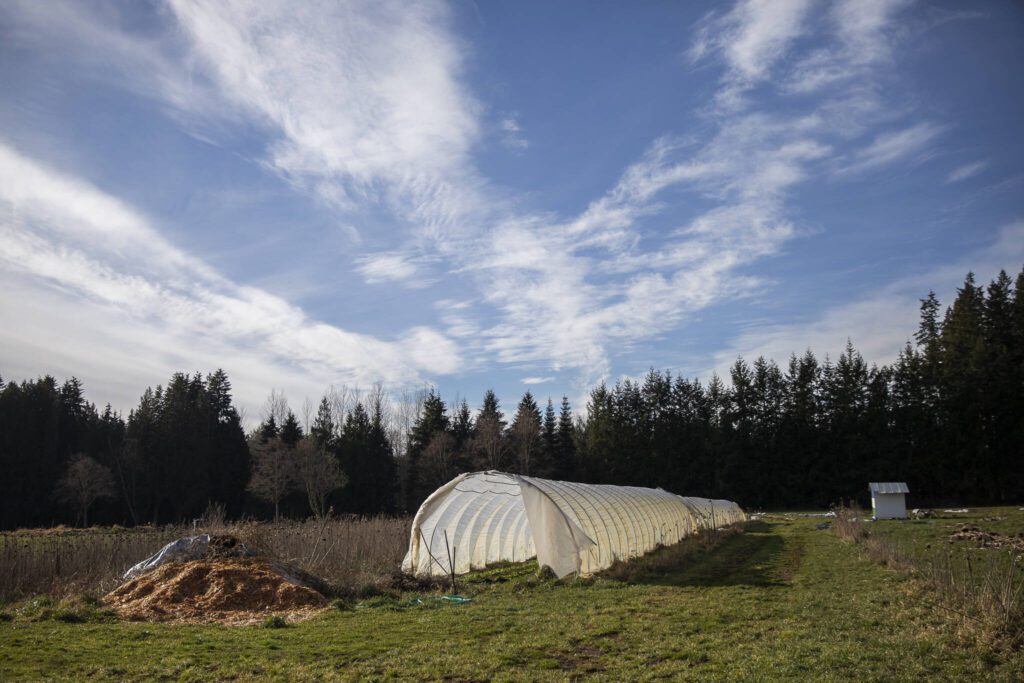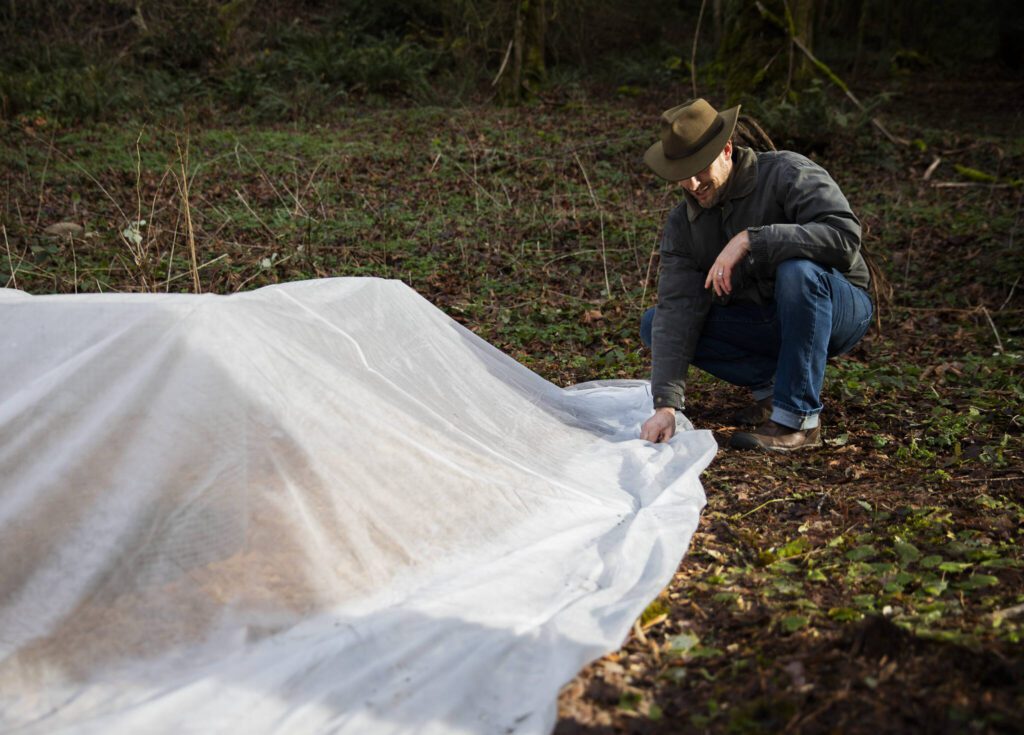ARLINGTON — Frost sparkled in the afternoon sunshine as Dave Boehnlein’s boots crunched through grass fields behind his mobile home in rural Arlington.
Boehnlein and his wife, Yuko Miki, own 240 acres of farmland just off 228th Street Northeast. But soon the couple will share the land with dozens more people.
The couple is a part of Rooted Northwest, an agricultural cooperative. At the beginning of December, Snohomish County Council approved the Rooted Northwest agrivillage preliminary plat, allowing the couple to start their dream project of creating a farm-focused neighborhood in rural Arlington.
Rooted Northwest worked with Snohomish County Council to pass a new code — the Rural Village Housing Demonstration Program — which allows higher-density home construction in rural areas to occur for the next six years.
Essentially, the program is a trial run, Boehnlein said. The county gets to test out the new parameters before permanently changing the laws. Applicants have two years to submit proposals and then four years to receive approval.
As of now, the program is set to expire in six years unless re-authorized by County Council.
Rooted Northwest’s first phase of building will construct a tightly clustered set of houses for 40 people. The homes will be set in two rows with a common house as a core center to the tiny neighborhood, Boehnlein said.
The cluster will be backdropped by plots of vegetables, herbs and livestock, owned in part by the people living there, stewarding their land.
“If you travel the world and you look at how people occupy rural space, they don’t occupy the way we do here in North America. It’s not house, drive, house, drive,” Boehnlein said, arcing his finger across the horizon in front of him, indicating theoretical space between buildings. “People have villages where they’re in clusters and then the farmland radiates out.”
The new code applies to rural lots of at least 100 acres and requires development to preserve 65% of the land for “rural character, working farm, or forest land.”
Boehnlein said he hopes the code and future agrivillage prompt a new pattern of preserving farmland and farmers.
The Rooted Northwest property used to be a dairy farm and still has some remaining infrastructure on site. A few years back, the organization received a $113,000 grant from the state Department of Agriculture to help build a washing station in an old hay shed.
A huge benefit of farming at Rooted Northwest is access to expensive infrastructure that is already set up, Boehnlein said.
Right now, the farm is leasing land to a few different farmers, some of which are graduates of the Viva Farms program, a nonprofit bilingual farm business incubator and training program that assists farmers with limited resources.
“We are the next logical step because I consider us to be a farm accelerator,” he said.
Now with the new code passed and the plat approved, Rooted Northwest is looking for more farmers and farm enthusiasts to buy houses in the agrivillage.
The group is hosting virtual potential homeowner and farming informational sessions on Feb. 2 and 20.
Eliza Aronson: 425-339-3434; eliza.aronson@heraldnet.com; X: @ElizaAronson.
Eliza’s stories are supported by the Herald’s Environmental and Climate Reporting Fund.
Talk to us
> Give us your news tips.
> Send us a letter to the editor.
> More Herald contact information.
